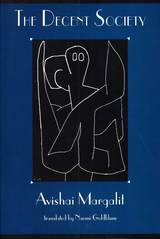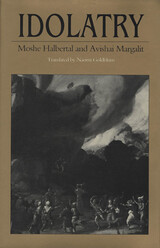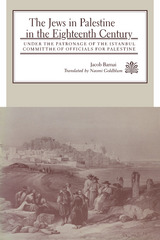
Avishai Margalit builds his social philosophy on this foundation: a decent society, or a civilized society, is one whose institutions do not humiliate the people under their authority, and whose citizens do not humiliate one another. What political philosophy needs urgently is a way that will permit us to live together without humiliation and with dignity.
Most of the philosophical attention nowadays is drawn to the ideal of the just society based on the right balance between freedom and equality. The ideal of the just society is a sublime one but hard to realize. The decent society is an ideal which can be realized even in our children's lifetime. We should get rid of cruelty first, advocated Judith Shklar. Humiliation is a close second. There is more urgency in bringing about a decent society than in bringing about a just one.
Margalit begins concretely where we live, with all the infuriating acts of humiliation that make living in the world so difficult. He argues in a concrete way in the spirit of Judith Shklar and Isaiah Berlin. This is a social philosophy that resists all those menacing labels that promote moral laziness, just as it urges us to get beyond the behavior that labels other human beings. Margalit can't be earmarked as liberal or conservative. If a label is necessary, then the most suitable is George Orwell's humane socialism, a far cry from Animal Farm socialism with its many tools of oppression. How to be decent, how to build a decent society, emerges out of Margalit's analysis of the corrosive functioning of humiliation in its many forms. This is a thoroughly argued and, what is much more, a deeply felt book that springs from Margalit's experience at the borderlands of conflicts between Eastern Europeans and Westerners, between Palestinians and Israelis.


Research reveals a clear connection between the legal and social status of the Jews in Palestine in the 18th century and their ties with the Diaspora. The Jews who had immigrated to Palestine in that period were mostly poor and elderly. The country was economically backward and politically unstable, which made it impossible for the immigrants to support themselves through productive work. Therefore they lived off the contributions of their brethren overseas. Taxes and fees imposed by the Ottoman rulers increased the financial desperation of the Jews in Palestine. Prohibitions against young unmarried immigrant men and women made for an unstable population largely of old men, many of whom died shortly after immigrating. Families succumbed to disease, earthquakes, and famine, but in the face of these problems, the Jewish communities in Palestine persevered.
READERS
Browse our collection.
PUBLISHERS
See BiblioVault's publisher services.
STUDENT SERVICES
Files for college accessibility offices.
UChicago Accessibility Resources
home | accessibility | search | about | contact us
BiblioVault ® 2001 - 2024
The University of Chicago Press









